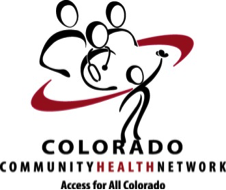Project Name: Developing a Comprehensive Women’s Health Program in Colorado Community Health Centers
Project Overview: Cervical cancer screening is an essential component of preventive health services for women. While nearly all cases of cervical cancer are preventable, Colorado has an estimated incidence of 160 new cervical cancer cases annually, and 40 cervical cancer deaths. The largely low-income, minority women served by the state’s community health centers (CHCs) are at elevated cancer risk, yet in 2013, just 59% of adult women received one or more tests to screen for cervical cancer, a rate well below national targets, and reflecting social determinants important to access and outcomes. Using a practice facilitation approach, and with the objective of increasing screening rates by 5% at each participating CHC, Colorado Community Health Network (CCHN) worked with a pilot group of six CHCs across the state to help them assess clinical workflow and adopt and share practice improvements aimed at increasing cervical cancer screening rates, advancing team-based care, and improving outcomes. These centers included:
- Denver Health Community Health Services (Denver) *
- Metro Community Provider Network (Englewood) *
- Mountain Family Health Center (Glenwood Springs)
- Clinica Family Health Services (Lafayette)
- Sunrise Community Health (Evans) *
- Uncompahgre Medical Center (Norwood) *
In year two, and building on the earlier practice transformation work, this effort was expanded: four of the initial cohort of six CHCs (*) continued with the program to develop comprehensive, integrated women’s health services. Three additional CHCs joined the group to implement the cervical cancer screening initiative:
- Denver Health Community Health Services, Las Casa Quigg Newton Community Health Center (Denver)
- High Plains Community Health Center (Lamar)
- Sheridan Health Services (Denver)
The goal of the project was to improve health outcomes for women by addressing operational, programmatic and cultural factors to support better access to care and service.
Initial project objectives were to:
- Improve cervical cancer screening rates in both the original and new cohort of participating CHCs, by 5%;
- Enhance the delivery of team-based care across all sites; and
- Increase the number of women receiving preventive care services.
Additional objectives specific to developing comprehensive, integrated women’s health services were to:
- Develop mechanisms for tracking core services provided to women of reproductive age, including cancer screening, depression screening, HPV immunization, substance use, and for collecting SOGI data;
- Integrate pregnancy intention screening into the workflow;
- Improve access to comprehensive family planning services; and
- Explore opportunities for enhanced reimbursement to support the delivery of comprehensive women’s health services.
- 2015-2016 Key Grant Activities
- 2015-2016 Key Project Outcomes
- 2016-2017 Key Grant Activities
-
2016-2017 Key Project Outcomes
- Four CHCs comprising the initial cohort reported improvements in the cervical cancer screening rates, with a year-end mean screening rate of 58.4% (range 37.1%-75.8%). The percentage of women who completed the HPV vaccination series also increased, from 27.4% to 31.5% (ages 9-18) and from 21.7% to 24.9% (ages 19-26).
- As CHCs in the initial cohort moved toward developing comprehensive women’s health programs, they implemented new processes to track pregnancy intention, depression screening, tobacco use, substance use, HPV immunization, and sexual orientation and gender identity data.
- Two of the three new practice sites engaged in the cervical cancer screening initiative were successful in increasing cervical cancer screening rates (33.1% to 40.1% and 59.6% to 63.8%) and all three improved team-based care delivery and enhanced the continuum of care related to screenings.
- CCHN worked closely with the Colorado Department of Health Care Policy and Financing (HCPF) and the Colorado Clinical Advisory Network to align reimbursement for Long Acting Reversible Contraception (LARC) with CHC needs and process; as a result, CHCs began billing for LARC services on a fee-for-service schedule as of July 1, 2017.
- CCHN initiated and strengthened collaborative relationships with the Colorado Department of Public Health and Environment (CDPHE) Title X Family Planning Program, the Centers for Disease control, and the Office of Population Affairs.
Additional project partners: Colorado Department of Public Health and Environment and The American Cancer Society.
About the Grantee:
CCHN is the unified voice for Colorado’s 20 Community Health Centers and their patients. CCHN’s mission is to increase access to high quality health care for people in need in Colorado.
Website at www.cchn.org




